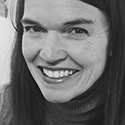Contact Us
We were all born foreigners. Our mothers’ wombs forced us to depart from the cozy comfort of a tiny space out into the cool, wide-open, confusion of the world. We were likely flung into the scent of humans, of antiseptic, of clean sheets. If we were born healthy, we screamed, our arms and legs stretched, and we reached for our mother or anyone who could comfort us. When we heard the sound of a gentle voice and felt our bodies blanketed in warmth again, we likely stopped crying for a while. We found our tiny spot in the universe, the firm foundation of our new tribe.
As we grew, we had no choice but to rely on each person who held us. We listened to voices, made sense of facial expressions and we imitated. We determined whom we could trust, and identified those whom we could not. We continually entered new situations scattered with colors, shapes, rhythms, temperatures and sounds, while we tried to decipher how to get what we needed, how to flourish.
Into adulthood, we repeated this process of assimilating into foreign situations. Whether we began class at a new school, started a job, tried a different gym, braved skiing for the first time, traveled to a far-off state or country – we were forced to inquire, to rely on others, and to discover new ways of moving throughout our world.
Recently, I began again the challenging process of integrating into a foreign community when I relocated from Connecticut to Zürich, Switzerland. As I arrived with my two dogs, two cats, two reptiles, husband and three children, I felt young again, but not in the beautiful poetic newborn kind of way. Instead, I felt I had regressed into a flailing, wide-eyed adult, completely dependent upon strangers. “The Swiss are very strict about rules,” I was told. So I asked for the rule book or web page. I thought I could zip right over the vulnerable part of expat life. “No rule book. You need to ask questions. Learn from others,” one mom explained. So there I stood, a 46-year-old mother incapable of speaking the language, recalling her new 10-digit phone number, unable to quickly identify tiny foreign coins at a crowded coffee shop, inept at turning on the washing machine, deciphering street signs, unlocking a grocery cart, taking out the trash. “Sprechen sie Englisch?” (Do you speak English?) I asked people timidly. Like a baby, I was forced to trust strangers. And in Zürich, many were from nations even less familiar than Switzerland. Yet when I asked for help, people in my new city were almost always kind. They guided me into my new world, weaving me tight and quick into a close community.
One evening, only two weeks into our move, my severely allergic 10-year-old needed to be rushed to the ER after he ingested a meal containing peanuts. My husband lay on the couch sick with the flu; so I stopped my knees from wobbling and I drove, for the first time, into the busy city. My panicky son sat in the backseat, while I squinted through thick fog locating the nearest red taillights that would lead me safely down the foreign streets. I imitated the car ahead. Follow that blue arrow this way. Watch for the tram that way. Careful of the pedestrians! I trusted. When I arrived at the hospital, I asked strangers for help parking, and then I scurried into the hospital to find a team of exceptionally kind doctors and nurses ready to care for my boy. I trusted again. Though my son was a foreigner, thousands of miles from his homeland, these strangers took him in, like they had been waiting for him.
As I continue to grow in my new community, I still feel overwhelmed; but today I’m swept up by the kindness of strangers and the opportunities we’re given to expand our communities every day of our lives. There was the Spanish mom who texted me, “Welcome! I’m going to introduce you to everyone in our town. I’ll make sure your (special needs) son is included.” There was the American mom who appeared with gingerbread cookies and her grinning daughter to welcome us on moving day. There was the Indian mom who invited us over for a warm meal of handmade naan bread and chickpea curry. There was the family from England and their thoughtful boy who made their home seem like a second one to my middle son. There was the South African mom who ensured that I met all the other mothers in fourth grade. There was the Swedish mom who invited us to our first “apero” at her home and talked me through a moment of panic relating to integrating my special needs son into school. There were the grocery clerks, the teachers, the bus drivers and the doctors who were patient with my questions; spoke my language when my German was impossible to comprehend, and forgave me when I behaved inconveniently slow and confused.
What have I done to earn this honor of community? Nothing. Yet here I am, proof of grace, of the kindness of every person who has helped me along since the day I was born. These people have built my arms, piece-by-piece, opened and ready for the next foreigner, the next friend who comes my way in need.
 Amy Aves Challenger is a writer and artist focusing on topics relating to the marginalized, families and children. She has been published regularly in The Huffington Post and also in The Washington Post, Mamalode.com, and Brain, Child Magazine. Her poems and a short story will be published in an upcoming anthology by Kind of A Hurricane Press. Amy lives in Fairfield, CT where she runs a support group for special needs mothers and also leads a writing workshop. She is writing her first novel about a child with special needs. Her poetry can be read daily on twitter @amychallenger.
Amy Aves Challenger is a writer and artist focusing on topics relating to the marginalized, families and children. She has been published regularly in The Huffington Post and also in The Washington Post, Mamalode.com, and Brain, Child Magazine. Her poems and a short story will be published in an upcoming anthology by Kind of A Hurricane Press. Amy lives in Fairfield, CT where she runs a support group for special needs mothers and also leads a writing workshop. She is writing her first novel about a child with special needs. Her poetry can be read daily on twitter @amychallenger.
